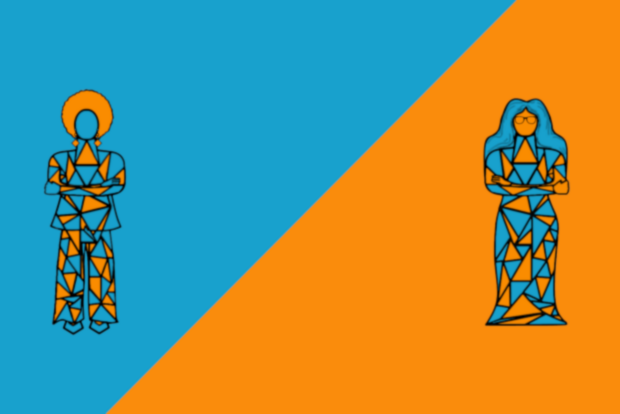The power of quiet persistence: Five minutes with Vanna Aldin, chief economist at the UK work and pensions department

In this sister series to our ‘Five minutes with’ interviews, we share insights from women civil and public servants as part of our Global Government Women’s Network coverage.
In this interview, Vanna Aldin, deputy director of business strategy, AI and data analysis and chief economist at the UK Department for Work and Pensions (DWP), tells Global Government Forum about balancing motherhood with demanding roles, male allyship, her pride in building high-performing, inclusive teams, and the importance of empathy.
What drew you to a career in the civil service?
What initially drew me to a career in the UK civil service was the opportunity to help shape policy that genuinely makes an impact on people’s lives. I was inspired by the idea that public service could be a powerful force for good – one that’s grounded in integrity, evidence, and long-term impact.
Over the years, what has kept me here is the continued belief in the power of robust evidence and analysis to inform better decisions. When evidence is used well, it can help design policies that are more impactful, effective, and sustainable. Being part of that process – and seeing the real-world impact it can have – remains for me deeply motivating.
What have you achieved in your career that you’re most proud of?
One of the things I’m most proud of is building and nurturing high-performing, inclusive teams. I’ve had the privilege of working in high profile and hugely relevant policy areas, leading teams made up of passionate, skilled individuals, and creating the conditions for them to flourish has been one of the most rewarding aspects of my career. Many former team members have gone on to thrive in both the public and private sectors, and I like to think I’ve contributed in some small way to their success. For me, leadership isn’t just about delivering results – it’s about enabling others to grow and find their voice.
What barriers or challenges have you faced as a woman in the civil service, and how have you overcome them?
One of the most significant challenges I’ve faced has been raising two children while working full time in very demanding roles. At the time, flexible or hybrid working wasn’t widely available, so being physically in the office every day required a high level of organisation and resilience. I quickly learned that you can’t do everything perfectly – and that’s okay.
My Prince2 [project management] qualification unexpectedly became a lifeline, helping me manage both work and home life with structure and discipline. Looking back now, with both my sons at university, I don’t regret I stayed in full-time work and didn’t sacrifice my career. I learned the importance of supporting each other, asking for what you need, and never underestimating the quiet power of persistence.
My advice to anyone starting a family is to treasure the moments, create good memories, and not feel guilty for juggling both worlds – you’re doing better than you think.
Join: Find out more and become a member of the Global Government Women’s Network
What is the best piece of advice you’ve been given in your working life?
“You never stop learning.” That simple truth has guided me through every phase of my career and still does. Whether it’s learning from a new policy area, from a colleague with a different perspective, or from a mistake – there’s always room to grow. It keeps the work fresh and reminds me to stay curious and open.
What can men in senior roles do to help advocate for female colleagues and ensure they have influence in their teams and organisations?
One of the most powerful things men in leadership can do is to actively listen to and sponsor their female colleagues – especially in rooms where decisions are made. That means not just inviting women to the table but ensuring they are heard, supported, and given opportunities to lead. It also means challenging biased assumptions – consciously or unconsciously held – that may influence recruitment. Advocacy also means modelling inclusive behaviours.
Who is your heroine?
My heroine is my mother. She was not allowed to continue her education beyond primary school because she had to care for her younger siblings, while her brothers were given priority to study. But she never gave up. In her late 30s, while raising two young children, she went back to school and later built a successful business alongside my father. She always encouraged me to study and never once doubted that I could achieve anything I set my mind to. Her resilience, determination, and belief in education shaped the values I hold today.
What attributes do you most value in people?
Curiosity, empathy, and humility. Curiosity keeps us asking better questions, empathy helps us connect with those we serve and work with, and humility reminds us that we always have more to learn – from anyone, at any level.























